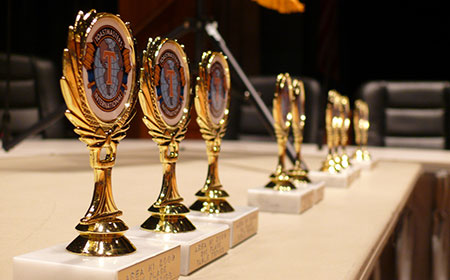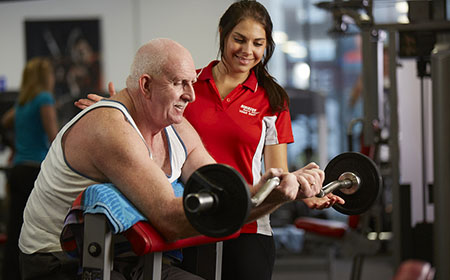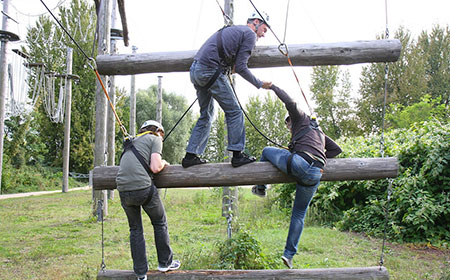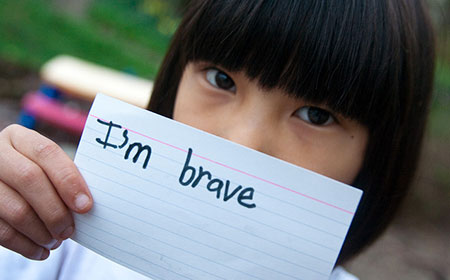10 Career Lessons We Can Learn from the Olympics
Most of us have watched the Olympics simply in awe of the amazing skill, dedication, and focus exhibited by athletes from all over the world. Yet these traits do not only serve the athletes well in the arena; they can also be carried over into the non-Olympic sphere. The drive to aim for gold, the passion to battle through setbacks, and the infallible work ethic of these athletes can serve as a powerful lesson for those of use who aren’t quite Olympics material, too, and are traits that are just as valuable in the office as they are in athletics. Here are 10 excellent career lessons that employees, managers, and business owners alike can take away from the Olympics. Hopefully they’ll inspire you to work just as hard for the career of your dreams as the Olympic athletes work for theirs.
NEVER STOP IMPROVING.
For Olympic athletes, stagnating when it comes to skills can mean the difference between getting gold and going home with nothing. They must constantly push themselves to be faster, stronger, and better than they’ve ever been, even sometimes blowing past the limits of what others said was humanly possible. This same kind of attitude and drive can go just as far in the office as it can in the arena. Pushing yourself to learn, to improve, and to excel at your job will not only make you better at what you do, it will more than likely gain the attention of management. Push hard enough, and you might just gain the skills and confidence to deliver a gold medal performance in your own profession.BE A TEAM PLAYER.
There are dozens of stories of amazing teamwork in the Olympics, from the dynamic duo of Missy May-Treanor and Kerri Walsh-Jennings to the impressive relay teams in men’s and women’s swimming. You don’t have to be an athlete to have that kind of commitment and loyalty to your team, however. The same kind of team dynamics apply in the office, too. You can do your career a big favor by learning how to be a solid and reliable team player and be willing to cheer on the team and help them work toward the end goal, even if your own ideas get sidelined. When it comes to work, a victory for the company is a victory for everyone involved (offering greater job stability and maybe even a bonus) so there’s no reason not to go all in with supporting your coworkers and earning their respect and support in return.RECOGNITION MATTERS.
Many Olympic athletes toil away for years to train for their individual events, only to lose out on gold within a matter of minutes. It can be devastating to work so hard and have nothing to show for it, as Allyson Felix explained after finishing second in both 2004 and 2008 (though she came back this year to earn the gold). While most things in the workplace aren’t nearly that extreme, the Olympics bring into startling focus just how much recognition really does matter to us. Even small acknowledgements can go a long way, so always thank others for their help and advocate for yourself when recognition seems slow to come or nonexistent in the workplace.STAND OUT.
Why do we go so crazy over Olympic athletes? Because they excel in ways many of us couldn’t imagine. They set themselves apart from the competition. They stand out as the best of the best in their given field. There’s no reason why you can’t apply that same principle to your own career. You may not be performing for a world audience or racing your way to an astonishing victory, but you can find ways to distinguish yourself from your peers. Find ways to showcase your unique talents, become the go-to expert in your office, or innovate a new and better way to do something. Be the most creative, savvy, reliable employee you can be, no matter what you’re doing. That kind of dedication will always make you stand out to the benefit of your career.DON’T GIVE UP.
We all face failure or major setbacks in our lives, and Olympic athletes are no exception. Major injuries, heartbreaking defeats, or even personal loss have sidelined the athletic careers of many but they’ve also pushed others to try even harder and to come back this year better and stronger than ever. Need an example? Sanya Richards-Ross came back from injuries and self doubt to take gold this year in the 400-meter. Gymnast Jonathan Horton battled a foot injury he thought would leave him unable to compete until 2016. Instead, he made the team in high bar for this year’s games and said, “The injury was the greatest thing that ever happened to me. I had lost my desire for a long time, and I realized that I don’t want to quit.” Obstacles in the office might not be physical, but they’re very often just as intimidating. Coming back from a failure or a mistake can be hard, but it’s that resilience and the refusal to give up that will ultimately get you success in your career.HAVE A GAME FACE.
Competing in front of millions of people in a once- or twice-in-a-lifetime event can be extraordinarily nerve-wracking, but many of the best athletes never let it show. They keep their fear and uncertainty under wraps, sometimes even masking their disappointment when things don’t go as planned. That game face allows them to develop a strong persona, one that often makes them a more fierce competitor. That same thing can also help you out in the workplace, especially if you work in a highly competitive environment. Developing your own game face, or a professional persona if you’d prefer to think of it in that way, can help you to appear more confident and capable. Your game face will help to keep those fears, self-doubts, and sweat-inducing worries from killing your performance at work.TAKE CARE OF YOURSELF.
Athletes spend hours a day working out, they eat right (usually), and pay attention to warning signs that things aren’t right with their bodies, like unusual pain or new symptoms. While you might not have a body that’s a finely tuned machine like that of an Olympic athlete, that doesn’t mean you should neglect your health. In fact, taking care of yourself could have a major impact on your career. Stress and too little sleep can leave you feeling strung out and not your best. When you work out, eat right, and take care of health concerns, you’ll miss less work and be more mentally on-the-ball. By taking care of your body, you’ll be enhancing your mind, and keeping yourself from getting burnt out, worn out, and sick. There’s really no better career asset than that.CREATE A SUPPORT SYSTEM.
While athletes may be alone when competing for gold, they rely on a team of supporters to help them get there. Coaches, family members, fans, and friends all create a support system that help make that Olympic dream a reality. That same kind of support system can also be an asset at work. Find a mentor, network with friends, get the support of family; whatever you do, don’t feel like you have to go it alone. A support system can help you feel grounded, give you advice, and help to ensure that you have someone to cheer you on whether you’re succeeding or picking up the pieces from a failure. In short, it can be an essential part of helping you to further your career, so make sure you have a few good supporters in your corner.USE YOUR STRENGTHS TO SUCCEED.
In Olympic team sports, different individuals will play different roles. For example, in gymnastics one team member might specialize in beam while the other is avaulting expert. In relay sports, one team member may be better at starting, another at finishing. Each plays a role in getting the team to victory. While the working world is different than athletic competitions, it does share similarities when it comes to this aspect of team play. Your role at a company should capitalize on your strengths, just like those team sports do with athletes. To succeed, you don’t have to be amazing at everything. Instead focus on the things you’re already good at, then hone those things and find a niche role to play in the bigger organization. If you’re not in the position to do that in your current job, then consider finding a new one that will help you to advance your career.FIND A PURPOSE.
You’ve likely heard the stories of Olympians who are going for gold not just for themselves but in the memory of lost loved ones. Others have simply dreamed of gold since they first took up their sport of choice. No matter what is driving them to win, individual glory, national pride, or the memory of a friend, there is no doubt that these individuals are sincerely dedicated to winning. They’ve given their mission a purpose, which can be a smart thing to do in your career, too. Why? Because purpose inspires passion and that passion is often what separates those who are highly successful from those who just can’t quite get there. Find the gold medal equivalent of success in your line of work and go for it!- Sourced From : http://www.onlinecollege.org











No comments:
Post a Comment